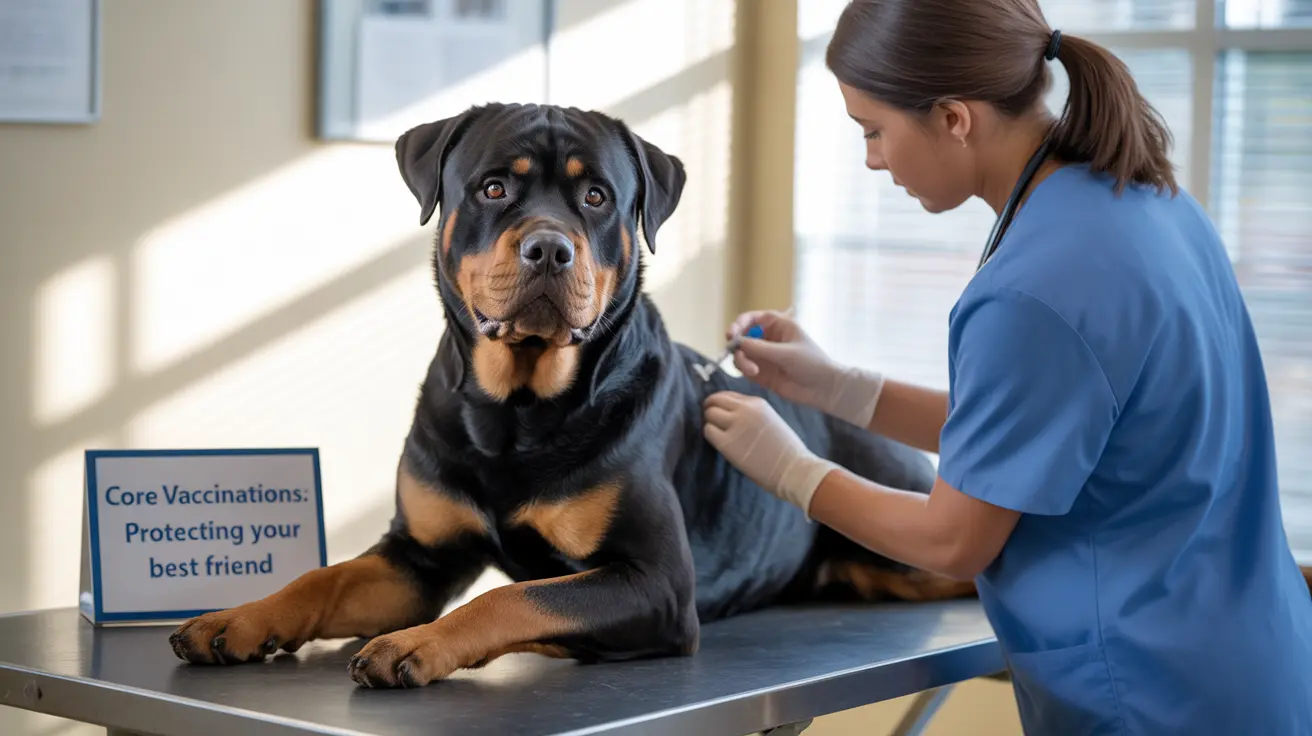Protecting your dog's health begins with understanding and following the right vaccination schedule. From puppyhood through the senior years, dog vaccinations play a crucial role in preventing serious and potentially fatal diseases. This comprehensive guide will walk you through everything you need to know about keeping your furry friend protected at every life stage.
Understanding Core vs. Non-Core Vaccines
Core vaccines are essential for all dogs, regardless of their lifestyle or location. These fundamental vaccines protect against highly infectious and life-threatening diseases:
- Distemper
- Parvovirus
- Adenovirus (Canine Hepatitis)
- Rabies
Non-core vaccines, also known as lifestyle vaccines, are recommended based on your dog's specific risk factors and environment. These may include:
- Bordetella (Kennel Cough)
- Leptospirosis
- Lyme Disease
- Canine Influenza
Puppy Vaccination Schedule: Building Early Immunity
The foundation of your dog's health starts with their puppy vaccines. Beginning at 6-8 weeks of age, puppies require a series of vaccinations administered every 2-4 weeks until they're at least 16 weeks old. This schedule ensures optimal protection as maternal antibodies naturally decrease.
Critical Vaccination Timeline
A typical puppy vaccination schedule includes:
- 6-8 weeks: First DAP/DHPP combination vaccine
- 10-12 weeks: Second DAP/DHPP plus optional non-core vaccines
- 14-16 weeks: Final DAP/DHPP and first rabies vaccine
- 1 year: Booster shots
Adult Dog Vaccination Requirements
Once your dog completes their puppy series, they'll transition to an adult vaccination schedule. Core vaccines typically require boosters every three years, while some non-core vaccines may need annual updates. Your veterinarian will create a customized schedule based on your dog's lifestyle and risk factors.
Senior Dog Vaccination Considerations
As dogs enter their senior years, their immune system changes, but vaccination protection remains important. Your veterinarian may adjust the vaccination schedule based on your senior dog's health status and lifestyle, while ensuring they maintain protection against core diseases.
Monitoring Vaccine Effectiveness and Safety
While vaccines are generally very safe, it's important to monitor your dog for any adverse reactions. Most side effects are mild and short-lived, including:
- Mild soreness at the injection site
- Temporary lethargy
- Slight fever
Frequently Asked Questions
What vaccinations do puppies need, and when should they start receiving them?
Puppies should start their core vaccinations (DHPP) at 6-8 weeks of age, with boosters every 2-4 weeks until 16 weeks old. Rabies vaccine is typically given at 14-16 weeks, and non-core vaccines are added based on risk factors.
How often do adult dogs need booster shots, and what types of vaccines are typically required?
Adult dogs need core vaccine boosters every three years in most cases. Rabies vaccines are required by law, with frequency varying by location. Non-core vaccines may need annual boosters depending on risk factors.
What are core and non-core vaccines for dogs, and how are they determined?
Core vaccines (DHPP and rabies) are essential for all dogs due to disease severity and transmission risk. Non-core vaccines are determined based on lifestyle factors, geographic location, and specific exposure risks.
Can I skip certain vaccinations if my dog is not exposed to specific risks, or are there legal requirements?
While core vaccines and rabies shots are legally required and essential for all dogs, non-core vaccines can be optional based on your dog's lifestyle and risk factors. Always consult with your veterinarian before skipping any recommended vaccines.
How do I keep track of my dog's vaccination schedule, and what are the consequences of missing booster shots?
Maintain a vaccination record card or digital tracker, and set reminders for due dates. Missing boosters can leave your dog vulnerable to serious diseases and may require restarting vaccine series in some cases.
Conclusion
Proper vaccination is a cornerstone of responsible pet ownership and essential for your dog's long-term health. By following recommended schedules and working closely with your veterinarian, you can ensure your dog remains protected against dangerous diseases throughout their life. Remember to keep accurate records and stay current with boosters to maintain continuous protection.






